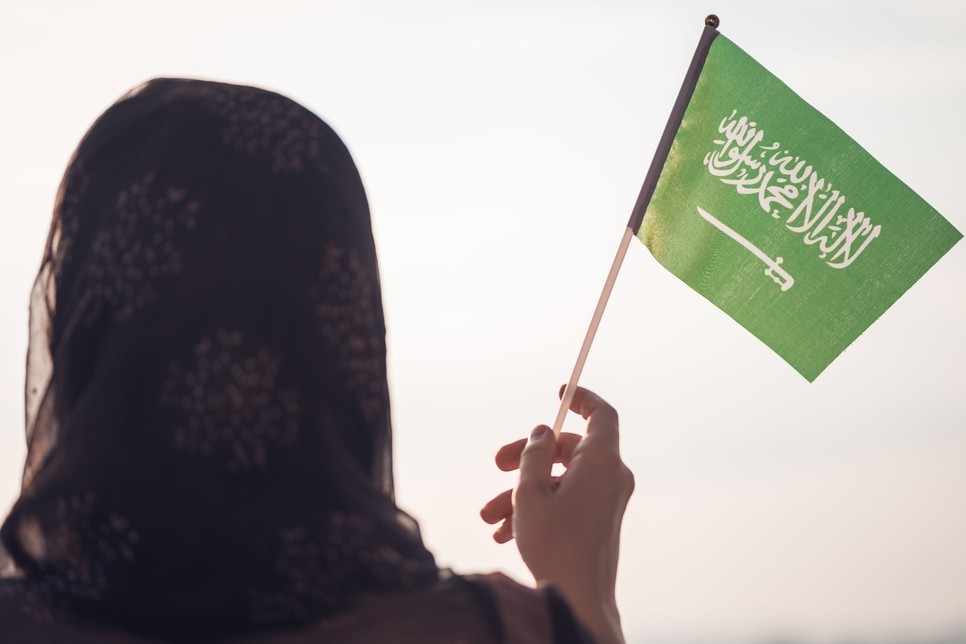
Shukria Yari
Postgraduate Student – MA.DLB programme
Jindal School of International Affairs (JSIA)
O.P Jindal Global University (JGU), Haryana – India
E-mail: 20jsia-shukria@jgu.edu.in
Introduction
Women are considered to be second class citizens across the world. They have also been exposed to unfair treatment and deprived of several things in society ranging from freedom of speech to choice of marriage, travel, employment, healthcare facilities, inequality in divorce, education, political decision making, and so on. Saudi Arabia is one of the countries that has the strictest laws when it comes to women’s rights.
Al-Rasheed highlighted that a major impediment for researchers is the “limited historical knowledge about and current research on Saudi women” explaining that most research on the country focused primarily on history, politics, oils, and Islamism (Al-Rasheed 2013). This means that women didn’t have the right to voice their opinion for a long time. The majority of the time that women’s issues is actually discussed, the discussion is predominantly lead by foreign scholars or by anonymous people from Saudi Arabia via social media. To an extent, it has had an impact on the liberalization of women’s rights in Saudi Arabia. However, in recent past, new laws have ushered progress in the status of women in Saudi Arabia. For instance, granting votes, establishing a quota for women on the shura council, appointing women to leadership positions, and soon allowing women to drive; are all incremental steps in improving the rights of women and increasing female participation in the workforce. This has brought a huge positive transformation at the dividual as well as the national level in Saudi Arabia.

Background of Women in the History of Saudi Arabia
The Saudi Society: Tradition and Change
Saudi Arabia is socially and religiously a conservative country that has a unique and complex culture which is influenced by Islamic principles and Arab customs (Metz, H. C., 1992). It has a high cultural homogeneity based on tribal and Islamic affiliations. Hence it is often difficult to differentiate between Islamic principles and Arabic customs (Al Lily, A. E. A., 2011).
In Saudi Arabia, government decisions are hugely influenced by religious leaders called the Ulema (Alharbi 2015)They recommend rules based on their interpretation of Islamic Sharia law (Alharbi 2015). The power imbalance between men and women, which exists socially and normatively is not reflected in the constitutional law of the country. For instance, while Article 8 of the Constitution of Saudi Arabia requires government action to be premised on justice and equality by the Islamic law, in practice, it is mostly according to the social structure and norms in the society (Alharbi, R., 2015). Women not being allowed to drive, or study law, or engineering does not come from religion, but from social structure. Therefore, norms, tradition, and the patriarchal characteristics of Saudi Arabia have shaped the position of women and subjugated them to gender segregation in several aspects of society.
According to Yahya Al Alhareth, major cities are generally less conservative than the remote areas, though Riyadh, the capital and centre of Wahabism in the middle of the country, is seen to be more conservative than the second city, the coastal port of Jeddah in the West, which is more cosmopolitan (Alhareth, Y.A., 2015).
The Economic Benefit of the New Laws in Saudi Arabia
The recent laws passed by the King of Saudi Arabia, Salman bin Abdulaziz Al Saud, have brought a lot of progress for women, as well as the nation in various domains of the country’s development. The World Bank Report (World Bank, 2020) recognized Saudi Arabia as a top reformer globally in the last year. These bold reforms have changed the lives of many women for the better. Approximately 6 million women have already benefiting the opportunities provided in recent years (World Bank,2020). Some of the benefits of the laws at the individual as well as the national level are highlighted below.
First, the new law helps women to be more financially independent which means that women will have more savings than before, it doesn’t only benefit herself but the whole family. Women are more likely than men to invest a large proportion of their household income in the education of their children (Katrin Elborgh-Woytek 2013).
Second, the new law in Saudi Arabia has provided a wider range of opportunities for women in their education. According to a reference (Puri-Mirza 2020) . In the 2016-2017 academic year, the share of female students in the higher education stage in Saudi Arabia amounted to 53.4 percent. In that academic year, the total number of students in the higher education stage in Saudi Arabia amounted to 1.82 million. (Puri-Mirza 2020). Moreover, The new law has also benefited women in studying universities abroad which helps them to be more independent by graduating and getting jobs that benefit themselves as well as the country by contributing to their economic growth in the long run. (More women than men in saudi universities, says ministry 2015)
Third, allowing women to drive will increase the number of national employees. As more drivers in the country means lesser the number of foreign chauffeurs. It also reflects positively on the amount of money transferred out of the kingdom since the foreign transfers will be reduced by $ 1.3 billion which also reflects positively on the balance of payments. Moreover, the amount of money that would hire foreign chauffeurs would come back to the employer inside of Saudi Arabia which means that it helps the individual household to have stable income (Hafiz T.Z., 2018).
Fourth, according to a report (Jeddah, 2018) the number of women working in the private sector has increased drastically; up to 130%. Allowing women to work means higher labour participation and employment which reflects higher national income and consumer spending such us on cars, insurance, transportation and etc. The new laws encourage women to set up new businesses, use their talents, skills and creativity which could benefit the economy of Saudi Arabia and boost the services sector in which women have a comparative advantage, simultaneously supporting the strategy of economic diversification.
Conclusion
Even though, the role of women in politics and the workforce in Saudi Arabia is one that has been stagnant for a very long time, the history of Saudi Arabia demonstrates a critical situation for women. Especially when it comes to the women’s rights, education and their deprivation from certain opportunities like freedom of speech, political rights and the disenfranchisement. However, in the recent past, there has been a paradigm shift in the policy of Saudi Arabia that lead to the transformation of the economic growth and performance in Saudi Arabia.
On an individual level, women have benefited greatly. Some of the benefits of these laws are becoming financially independent, broadening their perspective, financially contributing to their household, getting out of their small caves and travelling the world, get engaged in political matters, studying and graduating. More importantly, on the national level, the contribution of women towards the society plays a vital role in the betterment of economic performance of Saudi Arabia, alleviating poverty and enhancing educational prospects of future generations.
References
Al Lily, A. E. A., (2011). On line and under veil: Technology- facilitated communication and Saudi female experience within academia. Technology in Society, 33 (1), 119.
Al-Qahtani, M.M.Z., Alkhateeb, T.T.Y., Mahmood, H., Abdalla, M.A.Z., & Qaralleh, T.J.O.T. (2020). The Role of the Academic and Political Empowerment of Women in Economic, Social and Managerial Empowerment: The Case of Saudi Arabia.” Economies, 8, 45.
AL-Ubaydli, O. (2019, August 12). How Saudi Arabia has increased female employment, and why the country benefits. Al Arabiya. Retrieved from https://english.alarabiya.net/en/views/news/middle-east/2019/08/12/How-Saudi-Arabia-has-increased-female-employment-and-why-the-country-benefits-.
Alharbi, R. (2015). Women’s Rights in Saudi Arabia: Example of Political Life and Employment. (Working Papaer, King Fahd University of Petroleum and Minerals) Retrieved from https://www.researchgate.net/publication/318460120_Women%27s_Rights_in_Saudi_Arabia_Example_of_Political_Life_and_Employment?channel=doi&linkId=596c11b40f7e9b80919891fd&showFulltext=true.
Alhareth, Y. A., Alhareth, Y. A. & Dighrir, I.A. (2015). Review of Women and Society in Saudi Arabia . American Journal of Educational Research, 3(2), 121.
Hafiz, T.Z. (2018, July 8). The economic benefits of women driving in Saudi Arabia. Arab News. Retrieved from https://www.arabnews.com/node/1335466.
How Economic Realities in Saudi Arabia Can Benefit Women. (2017, January 26). Knowledge at Wharton. Retrieved from https://knowledge.wharton.upenn.edu/article/economic-realities-saudi-arabia-can-benefit-women/.
Hussein, B. (2018). Energy: Driving force behind increasing female participation in the Gulf?. Retrieved from https://www.atlanticcouncil.org/in-depth-research-reports/report/energy-driving-force-behind-increasing-female-participation-in-the-gulf/.
Judd, E. (2020, January 15). Saudi Arabia named most improved economy for gender equality: World Bank Report. Al Arabiya. Retrieved from
https://english.alarabiya.net/en/business/2020/01/15/Saudi-Arabia-named-most-improved-economy-for-gender-equality-World-Bank-.
Metz, H. C. (1992). Saudi Arabia: A Country Study. Washington: GPO for the Library of Congress.
Mustafa, R. F. & Troudi, S. (2019). Saudi Arabia and Saudi Women in Research Literature: A Critical Look. Asian Social Science Archives, 15(2), 133.
Nugali, N. (2020, January 18). Saudi Arabia named world leader for reforms advancing economic role for women. Arab News. Retrieved from https: //www.arabnews.com/node/1613871/saudi-arabia.
Reynolds, O. (2018, June 8). How will Saudi Arabia’s economy benefit from lifting the women’s driving ban?” FocusEconomics. Retrieved from https://www.focus-economics.com/blog/economic-impact-saudi-arabia-lifting-womens-driving-ban.
Saidi, N. (2017, October 3). Empowering Saudi women can bring huge economic benefit . The National Retrieved fromhttps://www.thenationalnews.com/business/economy/empowering-saudi-women-can-bring-huge-economic-benefit-1.663708.
Saudi Arabia driving ban on women to be lifted. (2017, September 27). BBC News. Retrieved from https://www.bbc.com/news/world-middle-east-41408195.
Topal, A. (2019). Economic reforms and women’s empowerment in Saudi Arabia. ELSEVIER. Women’s Studies International Forum, 76, 102253.
World Bank. (2020) Women, Business and the Law. Retrieved from https://wbl.worldbank.org.
The opinions expressed in this article are those of the author (s). They do not purport to reflect the opinions or views of the Jindal Centre for the Global South or its members.
